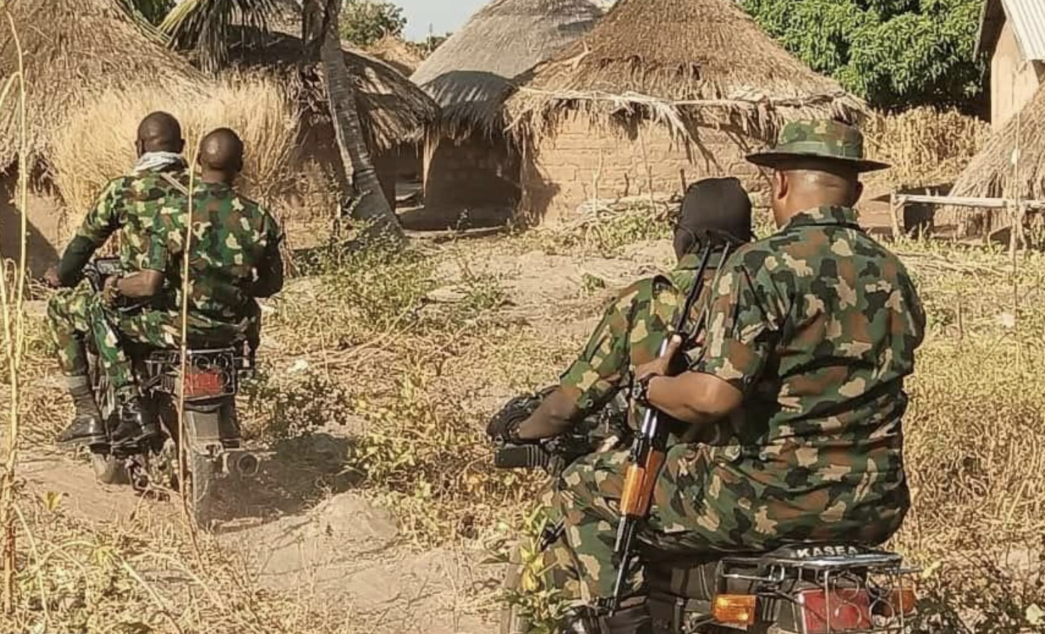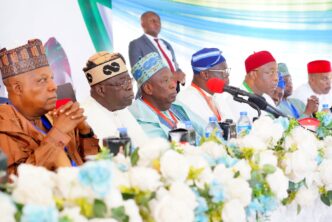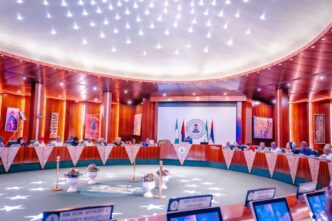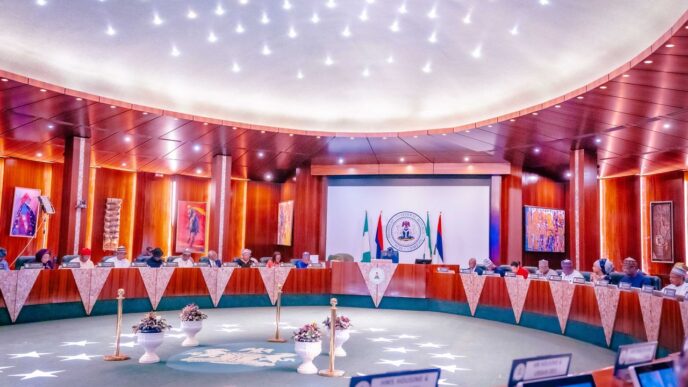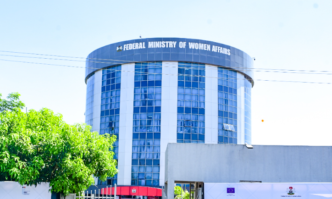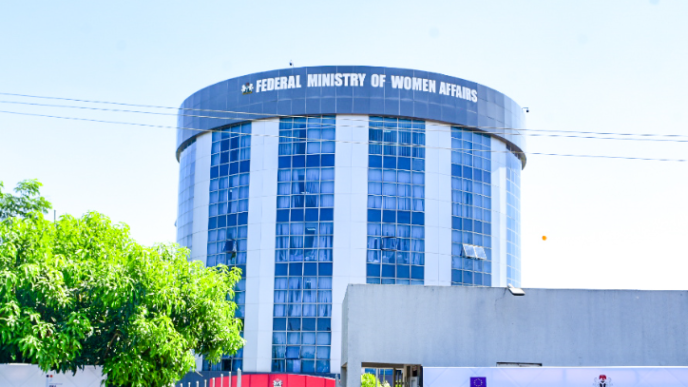Nigerian troops in the north-east
BY IBIFIK OKU
I have said it before, and I will say it again: insecurity in Nigeria has become a thriving business. For a country endowed with abundant human and natural resources, our continued battle with terrorism, banditry, and communal violence is not just a failure of capacity, it is a consequence of profit-driven sabotage.
Make no mistake: Nigeria does not lack the ability to fight and win this war. The Nigerian military has a proud legacy. Our troops have served honourably in peacekeeping missions across Africa, showing discipline, resilience, and tactical skill. At home, they have repelled insurgents and held difficult terrain under extreme conditions. But despite the bravery of our rank-and-file soldiers, peace remains elusive.
Why?
Advertisement
The answer lies not on the battlefield, but in the corridors of power.
The hard truth is that insecurity has become a lucrative industry. Some retired and serving military officers, contractors, and political actors have turned national suffering into personal gain. The longer the violence lasts, the more contracts are awarded, the more budgets are padded, and the more public funds vanish under the guise of national defense. The result? An endless cycle of violence that benefits the few at the expense of the many.
The figures are alarming. According to a 2020 report by Transparency International, Nigeria’s defense sector is riddled with procurement fraud, contract inflation, and lack of accountability. Frontline soldiers have repeatedly complained of being poorly equipped, while billions of naira disappear in the name of security. The 2016 “DasukiGate” scandal, where billions meant for arms were allegedly diverted for political campaigns—is only the most publicised tip of the iceberg.
Advertisement
A particularly telling moment occurred during President Goodluck Jonathan’s administration. Faced with growing Boko Haram threats, about thirty South African mercenaries were hired to assist in the north-east. In a matter of weeks, these professionals helped turn the tide, driving back insurgents and reclaiming territory. There was real momentum. Yet, just as victory seemed possible, pressure came from the same powerful figures benefiting from the conflict. The mercenaries were told to stand down. Why? Because a decisive end to Boko Haram would also mean the end of the cash flow that the insurgency provided. Peace, simply put, was bad for business.
How else do we explain the fact that terrorists often possess better weapons than our soldiers? Why does Nigeria continue to spend trillions on defense annually, yet still rank among the world’s most insecure nations? It is not a question of capacity, but complicity.
While the elites profit, the north-east continues to bleed. Entire communities have been displaced. Children grow up in IDP camps with no access to education. Farmers have abandoned their lands. Women are widowed and villages are wiped out. The human cost is staggering. Borno, Yobe, and Adamawa have become symbols of a broken promise: that the government exists to protect its people.
Insecurity has also become a political tool. During election seasons, violence is used to suppress votes in key areas. Campaigns promise security reforms that are quietly shelved once victory is achieved. Even when soldiers make gains on the ground, political leaders often fail to consolidate the progress with meaningful governance or rebuilding efforts. Why? Because sustained peace threatens the structure of political and financial gain built around insecurity.
Advertisement
But Nigeria cannot continue this way. The blood of our citizens must not serve as oil to grease the wheels of corruption.
We must demand a full audit of defense spending. The National Assembly must rise beyond partisan interests and perform its constitutional oversight duties. Whistleblowers must be protected, not punished. Civil society and the media must continue to expose the rot, regardless of whose name is involved.
Above all, we need leaders, military and civilian, who are driven by conscience, not contracts. Leadership that sees human lives, not figures on a ledger. Until then, the war may rage on, not because it cannot be won, but because too many powerful interests refuse to let it end.
The time has come to dismantle the economy of war and replace it with the architecture of peace. Anything less is betrayal.
Advertisement
Ibifik Oku is a writer and social commentator focusing on governance, justice, and national development.
Advertisement
Views expressed by contributors are strictly personal and not of TheCable.

